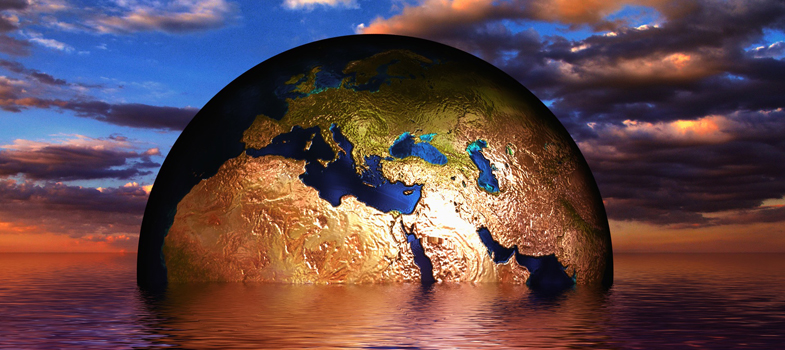2 Analysing the effectiveness of large-scale mitigation
2.1 Negotiating Kyoto post-2012
Kyoto does not expire in 2012 (it's just the end of the first commitment period), but a new international framework needs to have been negotiated and ratified by this date. At COP13, countries started to negotiate post-2012 commitments for industrialised countries who had ratified Kyoto. This process proceeds in parallel to looking at a post-2012 deal for all countries, although the two tracks may be combined when/if a new climate compact is agreed at COP15. Any new international framework must be able to deliver emission reductions at least as great as those indicated by the IPCC.
Intergovernmental Panel on Climate Change (IPCC)
The IPCC is a scientific body set up by the World Meteorological Organization (WMO) and the UN Environment Programme (UNEP), and its constituency is formed of governments (of member countries of WMO and UNEP), scientists and other interested parties.
As an objective source of information about climate change, the IPCC does not conduct any research nor does it monitor climate-related data or parameters. Its role is to assess the latest scientific, technical and socio-economic literature relevant to understanding the risk of human-induced climate change, its impacts and options for adaptation and mitigation.
The main activity of the IPCC is to provide regular assessment reports of the state of knowledge on climate change. The latest one is Climate Change 2007, the Fourth IPCC Assessment Report (AR4) with the outline of AR5 having been started (report due for completion in 2014). The IPCC also produces special reports, methodology reports, technical papers and supporting material, often following requests from the Conference of the Parties to the UNFCCC, or from other environmental conventions.
While politicians, including those from the UN, made very positive statements about the production of the Bali road map, especially given the difficult negotiations required, other observers were not so impressed. Hans Verolme of WWF stated that ‘The [US] administration was out on a wrecking mission’, while Friends of the Earth and Christian Aid bemoaned the lack of a clear ‘destination’ for the road map, with crucial target figures for cutting carbon emissions in wealthier countries being removed from the final agreement. Some, however, were optimistic about the deal having been made, citing the importance of including the USA in any agreement. Still under the Bush administration at the time, the USA said that the climate change negotiating process it agreed to in Bali must ensure developing states took their fair share of emission cuts. This was contrary to existing agreements, which acknowledged that the more industrialised nations should bear a greater burden of emissions cuts.
With President Obama in office, it was generally believed that the USA would take a more progressive and effective stance. In April 2009, with EU leaders urging him to follow their ambitious climate targets, Obama said the USA was ready to take the lead in tackling climate change. New US leadership on fighting climate change has been sought ahead of COP15 due to the need for a new, effective agreement reaching beyond 2012. EU targets are to cut GHG emissions by 20% by 2020 from 1990 levels, rising to 30% if the rest of the developed world (primarily the USA and Japan) also agree to do so. The US House of Representatives recently received a draft bill for clean energy development which aims to increase reliance on renewable sources of energy and cut emissions by 20% by 2020, but from their 2005 levels. With emissions targets absent during the Bush administration, this move was welcomed in Europe, though cautiously due to the later base year, meaning they represent only a 5–6% reduction from 1990 levels.
1.8 The UK Department of Energy and Climate Change (DECC)
